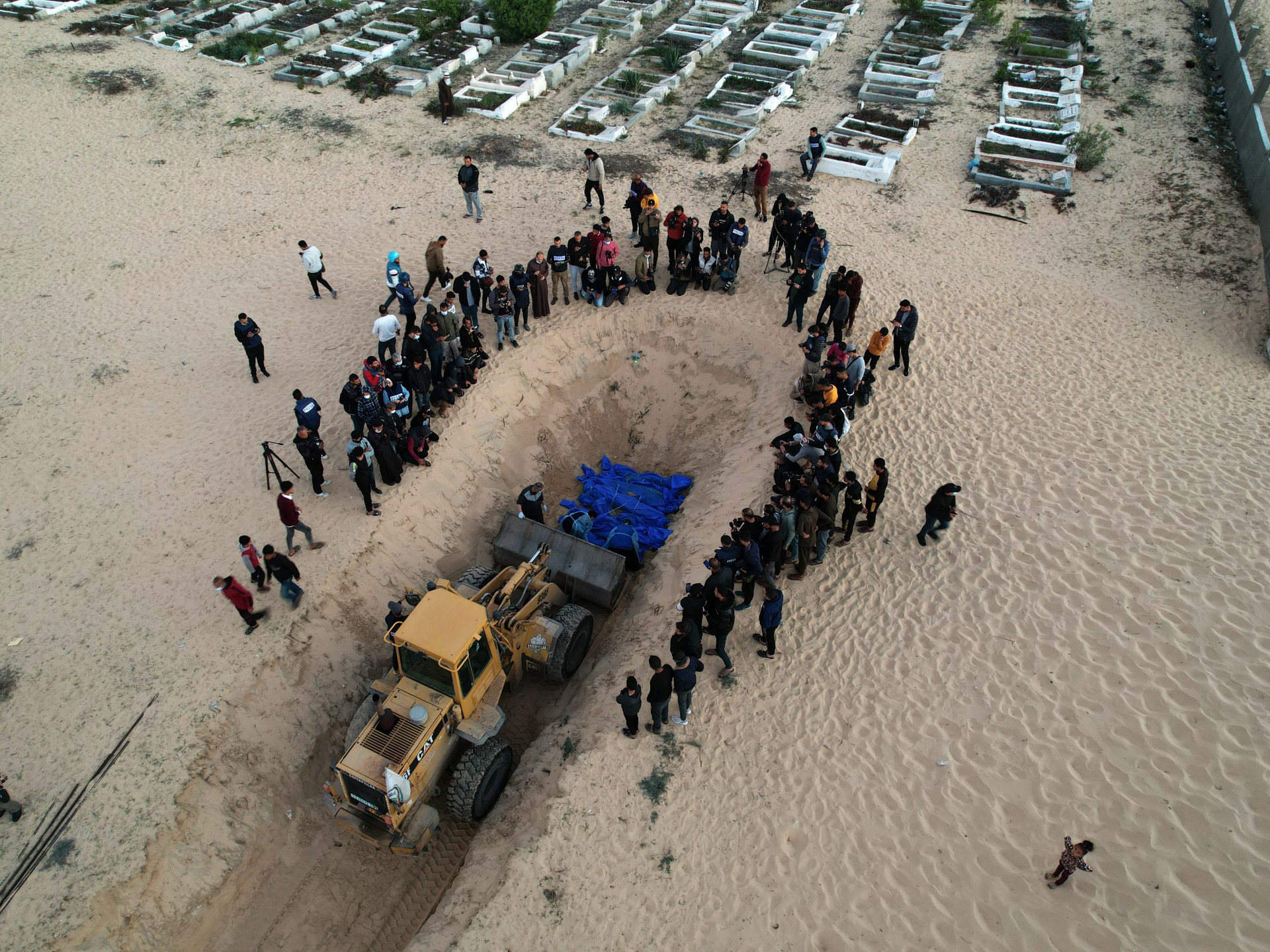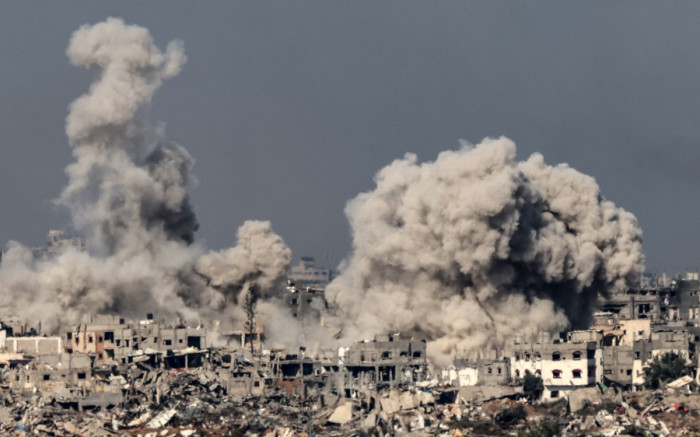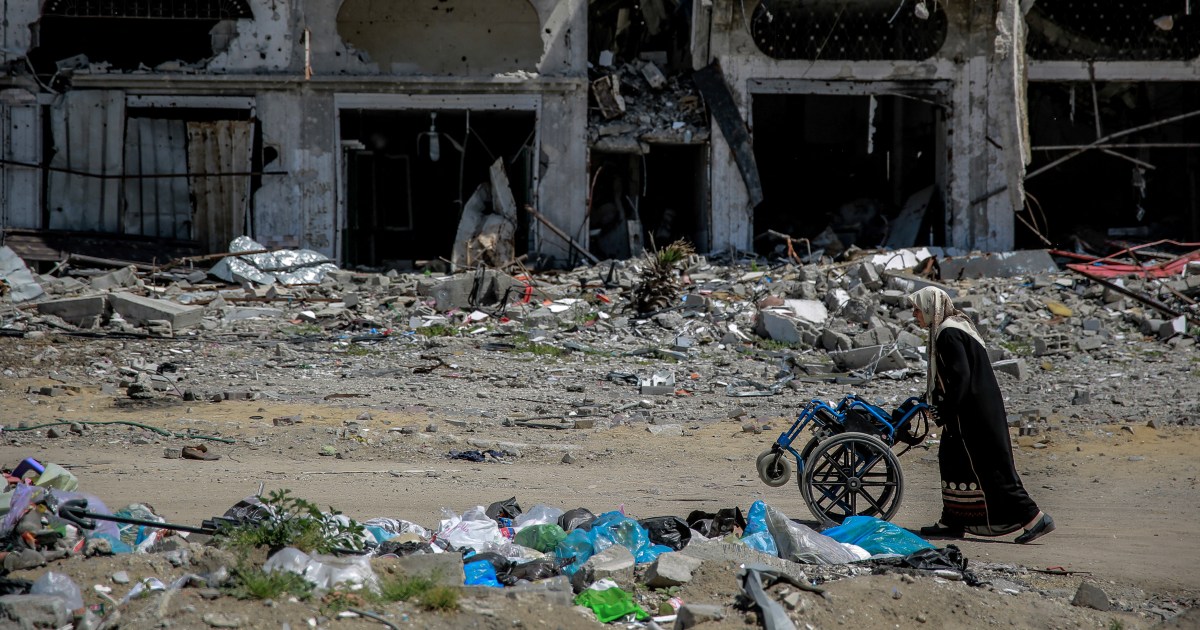
Israel has said it wants to take control of the entire Gaza-Egypt border area, signaling that its brutal war on Gaza is far from over.
Prime Minister Benjamin Netanyahu said at a weekly news conference on Saturday that the Philadelphi Corridor “must be in our hands” and shut down to ensure the security outcome desired by Tel Aviv.
Israel’s war against the besieged enclave has killed more than 21,000 Palestinians. With fighting now in its 13th week, what significance does the corridor have, why does Israel want control and what impact could that have?
What is the Philadelphia Corridor?
The Philadelphi Corridor, also called the Philadelphi Route, is the 14 km (8.7 mi) long strip of land that represents the entire border area between Gaza and Egypt.
It was established as a buffer zone controlled and monitored by Israeli forces as part of the 1979 peace treaty with Egypt, which ended Israel’s occupation of the Sinai Peninsula and reopened the Suez Canal.
Its stated aim was to prevent weapons and materials from falling into the hands of Palestinians in the Israeli-occupied Gaza Strip and to prevent people from moving between the Palestinian territories and Egypt without strict controls.
“It has to be closed. “It is clear that any other agreement would not ensure the demilitarization we seek,” Netanyahu said Saturday, suggesting the war could last many more months.
How does Egypt feel about this?
In 2005, Israel withdrew from the Gaza Strip under international pressure and instead turned the densely populated Palestinian land into the largest open-air prison in the world.
Egypt has become the key player in controlling the corridor, which represents the only link to the outside world not controlled by Israel – as Tel Aviv maintains a land, sea and air blockade of the strip from all other sides.
An agreement following Israel’s withdrawal from the area in 2005 allowed Egypt to deploy 750 soldiers and heavy weapons to patrol and protect the Egyptian side of the corridor, with responsibility for the other side transferred to the Palestinian Authority.
But Hamas was there full control of Gaza about two years after the Israeli withdrawal, and things changed.
Egypt has said it has repeatedly destroyed tunnels dug by Palestinians over the years to smuggle weapons and people, but Israel has questioned the effectiveness of Cairo’s measures.
Now Israel wants full control of the border area, including crucial areas Rafah crossing, supposedly to ensure his safety. But that would effectively amount to a complete reoccupation of the Gaza Strip, something Israel and the US publicly disagree about.
Both Egypt and Hamas oppose Israel regaining control of the corridor, and Egyptian President Abdel Fattah el-Sisi has repeatedly said Cairo will not allow the Palestinians to do so offset from their homeland to Egypt.
What is Israel planning?
Netanyahu wants to reassure his domestic audience – which has grown angry and critical about his handling of the war and his failure to return dozens of prisoners still in Gaza – said Rami Khouri, journalist and distinguished scholar at the American University of Beirut. At the same time, Khouri said, the Israeli prime minister wants to stoke more fear among Palestinians and create new pressure for negotiations with the United States and Egypt.
“So everything he says has multiple audiences, multiple purposes and should not be taken at face value,” Khouri told Al Jazeera.
“We have to look at this as another element that he is throwing into the bargaining pot.”
Khouri said Egypt would not agree to Israel taking back control of the corridor and establishing a military presence there decades after its withdrawal.
He said Netanyahu’s comments could also be seen in the context of Israel’s constant pursuit of territorial expansion since its founding in 1948 – even if this has not brought security to the country.
“The more they expand, the more they control land, the more they try to protect themselves by taking over people’s land and driving people out of their homes, the more unsafe they become because they only create larger and more intense forms of resistance of the Palestinians.” and other people, including Hezbollah in Lebanon.”
Didn’t Israel want another corridor in the north?
Yes, Israel raised the idea of another “buffer zone” along its border with the northern part of the Gaza Strip to Arab leaders and the US last month as part of its “buffer zone.”Day after Hamas” Plans.
Tel Aviv reportedly wants to increase this corridor within the Gaza Strip to ensure that it does not suffer another attack like the one on October 7 by Hamas, which killed around 1,140 people in Israel.
Earlier this month, White House National Security Council spokesman John Kirby said Washington opposed “any reduction of Gaza’s geographical borders.”
The US has also stated that it wants the Palestinian Authority to take over security in the Gaza Strip, which contradicts IIsrael’s aspirations for establishing a direct presence there.






Recent Comments